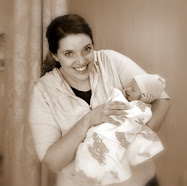Co-sleeping is a common practice in non-Western cultures but is growing in popularity as it promotes breastfeeding, bonding and is safer than crib/cot sleeping when practiced correctly. Some parents continue co-sleeping with their children into toddlerhood and young childhood. Co-sleep is a sleeping practice where parents have the infant sleep with them rather than in a separate bed or crib.
Co-sleeping has received a bad reputation in the Western world due to poor practices that have resulted in infants being smothered by bedding or crushed by parents. However, when done properly, co-sleeping can have many benefits. Here are a few facts to consider when co-sleeping with your baby:
1. WIll I crush or smother my baby?
It is impossible to claim that there is ZERO chance of an adult crushing or smothering a baby while sleeping as there is no infant sleep environment is 100% risk free. In the worldwide ethnographic record, mothers accidentally suffocating their babies during the night are virtually unheard of, except among western industrialized nations. However, in western culture, there are an overwhelming number of infant death cases.
Many studies suggest that mothers and infants are designed to respond to the presence of each other throughout the night. Having said that, with safe practices, you will not smother your baby while co-sleeping.
2. How can I safely sleep with my baby?
- Adults should not have consumed alcohol, drugs, or any narcotics while co-sleeping
- It is not recommended to cosleep on couches, sitting chairs or water beds
- The bed and mattress should be firm and should fit tightly against the headboard/footboard so that an infant cannot fall between cracks
- Avoid using duvets and lots of pillows
- Lightly wrap the baby rather than using heavy clothing, as contact with other bodies increases the baby’s temperature
- The baby should not be placed on a pillow or have their head covered by blankets
- It is not recommended to sleep with other children in the bed or allow toddlers to sleep alone, as children are not always aware when sleeping with other people
3. Can I sleep with my baby and my spouse in the same bed?
Yes you can. Ensure both adults are in agreement of the sleeping arrangement and never assume that the adult is aware of the baby in the bed. One suggestion is to make both parents agree to be responsible for the baby, not one, so both are accountable for the baby and its positioning.
4. What are the benefits of cosleeping?
- Ease of breastfeeding: One study found that bed sharing infants breastfeed about twice as often as regular solitary sleepers, with the total duration of nightly nursing episodes amounting to almost three times of what is observed in lone sleep conditions (see p. 124 of Natural Parenting – Back to Basics in Infant Care – by Regine A. Schön and Maarit Silvén in the Evolutionary Psychology journal)
- Better sleep for mom and baby: Co-sleeping means more sleep and generally less anxiety about sleep compared to mothers whose babies sleep in another room who need to get out of bed to respond to their baby. This causes the mother to wake up more fully and makes it more difficult for her to fall back asleep. Also, she is less able to rest while tending to her baby than a mother who is in bed with her baby. This is backed up by research by M.D. Gordon and S.L. Hill in 2008 that found co-sleeping families were less likely to believe their infant’s sleep was problematic than non-co-sleeping families
- Mothers can react to baby: Co-sleeping mothers are more in tune with their baby’s sleep and can take action to keep their baby comfortable and safe during the night. Parents that have a baby in a separate room and use a baby monitor will hear their baby cry, but may not hear more subtle signs that their baby is uncomfortable. Missing those subtle cues can mean that the baby needs to wake more fully in order to alert the parents, which can result in more effort and time required to resettle the baby
- Bed bonding results in more independent children: (reported on p.141 of Natural Parenting – Back to Basics in Infant Care) found that “routinely sharing the parents’ bed in infancy has been associated with greater self-reliance and social independence at preschool age than a history of solitary sleeping (Keller, M. A., and Goldberg, 2004).” Other studies have also consistently reported higher self-esteem among children and adults that co-slept during childhood
- Allows working parents to connect with their child
4. What are the risks of co-sleeping?
- Smothering/suffocating a baby is the biggest risk of co-sleeping when not done properly
- Crushing the baby
- The baby falling off the bed or between bed cracks
5. Until how old can I co-sleep with my baby?
You can co-sleep with your baby as long as works for your family. It has been proven that the longer you co-sleep with your baby, the more independent and well-adjusted they will be later in life.
6. Can a baby die of SIDS while cosleeping?
There is always a chance of a baby dying of SIDS when sleeping, as it occurs when babies sleep alone in an emptied crib and in a bed with other people. However, the odds are signifigantly reduced when co-sleeping properly.



No comments:
Post a Comment